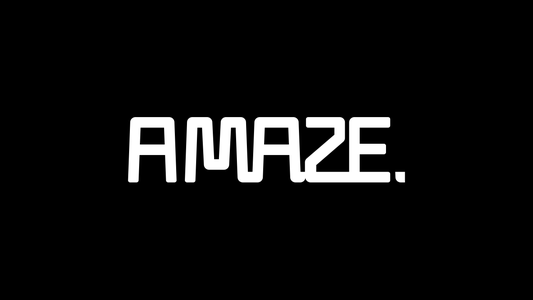Introduction to Unity Encryption
In the realm of game development, safeguarding assets and code is paramount to prevent unauthorized access, cheating, and intellectual property theft. Unity, as a leading game engine, offers various encryption methodologies to protect game data and ensure a secure gaming experience.

Understanding Unity's Built-in Encryption Features
Multiplayer Encryption Plug-ins
Unity supports the integration of encryption plug-ins to secure data transmitted over networks. By implementing custom encryption algorithms, developers can protect their games against packet manipulation and server attacks. Unity provides guidelines for creating such plug-ins, emphasizing the need for functions like data encryption and decryption, ensuring data integrity during multiplayer sessions.
DTLS Encryption for Relay Services
For games utilizing Unity's Relay services, Datagram Transport Layer Security (DTLS) can be enabled to encrypt all UDP communications between Relay servers. This enhancement adds a layer of security without altering the existing authentication flow, ensuring that messages remain confidential and tamper-proof during transmission.
Legacy Network Security Initialization
In earlier versions, Unity provided the Network.InitializeSecurity function to initialize the security layer, incorporating features like AES encryption and RSA key protection. However, this approach has been deprecated in favor of more advanced and customizable security measures in recent Unity releases.
JikGuard's Game Protection for Unity
JikGuard provides a specialized game protection solution designed specifically for Unity engine games. Their approach emphasizes high compatibility, robust security, and minimal performance overhead.
Key Features of JikGuard's Unity Protection
▪ SO File Encryption: Secures shared object files to prevent unauthorized access.▪ AssetBundle Encryption: Protects AssetBundles, ensuring game assets remain uncompromised.
▪ Lua Script Encryption: Encrypts Lua scripts to safeguard game logic and functionality.
▪ DLL Files Encryption: Secures dynamic-link libraries, preventing code manipulation.
▪ IL2CPP Encryption: Protects IL2CPP binaries, enhancing the security of compiled code.
▪ Resource Encryption: Ensures that game resources are encrypted, preventing unauthorized extraction.

Strengths of JikGuard's Solution
▪ High Encryption Level: Utilizes VMP source code protection combined with proprietary code obfuscation, achieving robust encryption with minimal performance impact.▪ High Compatibility: Built with a pure native approach, avoiding issues related to device fragmentation and supporting multiple platforms, including Android, iOS, PC, and H5.
▪ Low Performance Overhead: The security module, written in C++, employs private code obfuscation to ensure high security with negligible performance degradation.
▪ Rapid Integration: Requires zero integration cost and no additional development. Protection can be applied within 30 seconds using a single command line, supporting automatic packaging for multiple channels.
Implementing Encryption in Unity Projects
Integrating encryption into Unity projects involves a combination of utilizing built-in features and incorporating third-party solutions. Developers should assess the specific security needs of their game and choose appropriate methods to protect assets and code.
Best Practices for Unity Encryption
▪ Regularly Update Security Measures: Stay informed about the latest security practices and update encryption methods accordingly.▪ Combine Multiple Security Layers: Use a combination of obfuscation, encryption, and anti-tamper techniques to enhance overall protection.
▪ Test Performance Impact: Ensure that implemented security measures do not adversely affect game performance, maintaining a balance between security and user experience.
▪ Secure Network Communications: Implement encryption for data transmitted over networks to prevent interception and tampering.
Conclusion
Protecting Unity games through effective encryption is essential to maintain the integrity, security, and longevity of the gaming experience. By leveraging Unity's built-in features and integrating advanced third-party solutions like JikGuard's Game Protection, developers can safeguard their creations against unauthorized access and modifications, ensuring a secure and enjoyable experience for players. For developers looking for a comprehensive and seamless game protection solution, JikGuard Game Protection offers cutting-edge encryption and anti-cheat technology to ensure your game remains secure without compromising performance.
Why Choose JikGuard Game Protection?
√ On-Demand Security Assessment:
Not sure if your game needs encryption? JikGuard provides free security testing and reports, helping you identify potential risks through penetration testing and in-depth analysis.√ Minimal Performance Impact:
JikGuard’s encryption system only decrypts resources when needed, ensuring that files remain encrypted in the cache and have virtually no effect on loading speed or game smoothness.√ Seamless Multi-Channel Packaging:
Supports mother package encryption, meaning all sub-packages remain protected without requiring additional processing for different distribution channels.√ No SDK Required:
Unlike traditional solutions, JikGuard does not require SDK integration—simply run a command, and the encryption process is handled automatically.√ Ultra-Low Performance Overhead:
▪ CPU usage increase: <0.2%▪ Memory consumption: <1MB
▪ Startup time increase: <25ms
▪ Package size increase: <1.3MB
Ensuring a smooth and seamless gaming experience.
With JikGuard Game Protection, you can focus on game development while ensuring top-tier security against cheats, resource leaks, and competitive analysis. Protect your game today and keep your vision intact!




































